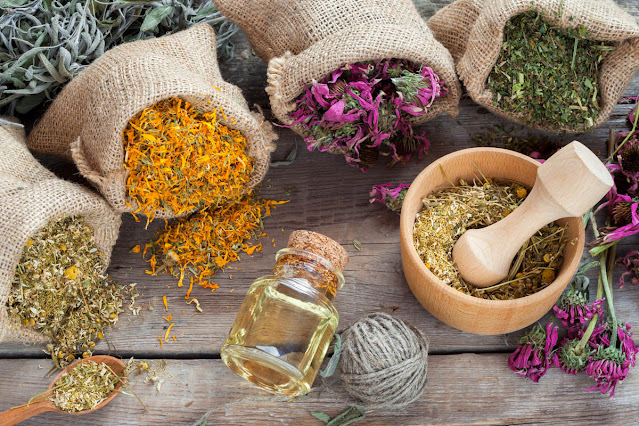Harnessing Nature's Cleansing Power: Herbs That Purify the Blood
Introduction:
The quest for optimal health has led individuals to explore diverse approaches, and among them, the use of herbs that purify the blood holds a significant place. Drawing from traditional practices and modern research, a range of herbs have been identified for their potential to cleanse and promote blood health. This exploration delves into a selection of these herbs, uncovering their historical significance, active components, and the scientific insights that support their role in blood purification.
- Burdock Root (Arctium lappa):
Historical Significance: With historical roots in traditional medicine, burdock root has been utilized as a blood purifier and general tonic. Ancient cultures recognized its potential to eliminate toxins and promote overall well-being.
Active Components: Burdock root contains inulin, a prebiotic fiber that supports gut health, along with antioxidants such as quercetin and luteolin. These compounds contribute to its potential detoxifying effects.
Scientific Insights: Modern research suggests that burdock root possesses anti-inflammatory and antioxidant properties. Its ability to support liver health and facilitate the elimination of waste products aligns with its traditional use as a blood purifier.
- Neem (Azadirachta indica):
Historical Significance: Neem occupies a prominent place in Ayurvedic medicine, revered for its blood-purifying properties. It has been used to address skin issues, support digestion, and aid in detoxification.
Active Components: Neem contains nimbin and nimbidin, compounds with antimicrobial, anti-inflammatory, and antioxidant properties, contributing to its potential as a blood purifier.
Scientific Insights: Scientific investigations into neem highlight its antibacterial and immune-modulating effects. While more research is needed to firmly establish its blood-purifying abilities, neem's influence on overall well-being aligns with traditional beliefs.
- Manjistha (Rubia cordifolia):
Historical Significance: Manjistha's rich history in Ayurveda revolves around its use as a blood cleanser, lymphatic tonic, and skin supporter. It has been valued for its potential to promote overall detoxification.
Active Components: The herb contains rubiadin and purpurin, compounds believed to have antioxidant and anti-skin allergy ka ilaj in urdu.
Scientific Insights: While research on manjistha's specific blood-purifying effects is limited, studies indicate its potential anti-inflammatory benefits. Its impact on the lymphatic system could indirectly contribute to detoxification processes, aligning with traditional usage.
- Red Clover (Trifolium pratense):
Historical Significance: Red clover has found a place in traditional herbal medicine as a blood purifier, and it's also used to address skin issues and hormonal balance.
Active Components: Red clover contains isoflavones, such as genistein and daidzein, which possess antioxidant and estrogen-like properties.
Scientific Insights: Research on red clover's isoflavones points to their potential benefits in supporting hormonal health. While its specific blood-purifying effects might be part of a broader spectrum of wellness, more targeted investigations are necessary.
- Turmeric (Curcuma longa):
Historical Significance: Turmeric, a vibrant spice, has a revered place in traditional systems. It's recognized for its potential to promote blood purification, among its many health benefits.
Active Components: Curcumin, the primary bioactive compound in turmeric, boasts powerful anti-inflammatory and antioxidant properties.
Scientific Insights: Extensive research highlights curcumin's potential in supporting overall well-being. Its anti-inflammatory effects and possible contribution to liver health align with its traditional use as a blood purifier.
Conclusion:
Herbs that purify the blood bridge the gap between historical wisdom and modern science. The historical significance of these herbs as blood purifiers is deeply intertwined with their potential health benefits, supported by a combination of traditional usage and scientific exploration. While the concept of blood purification might be interpreted differently across cultures and medical perspectives, the undeniable value of these herbs in promoting overall well-being is evident.
Incorporating these herbs into one's health regimen can be a thoughtful approach, but it's important to exercise caution and seek professional advice, especially for individuals with existing medical conditions or those taking medications. The journey toward optimal health benefits from the harmonious integration of traditional knowledge and modern research, providing a holistic understanding of the potential advantages offered by herbs that kharish.




Comments
Post a Comment